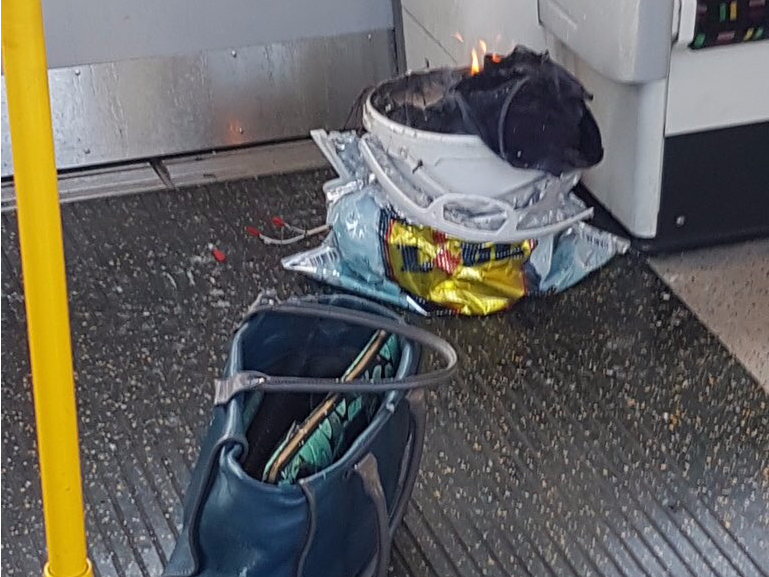The bomb planted on a London Underground train last week was packed with a deadly mixture of shrapnel and high explosives, which could have proved far deadlier than it did, Britain’s top police officer has said.
Cressida Dick, the commissioner of London’s Metropolitan Police, gave the first official description of the device left on a District Line train, which went off at Parsons Green station last Friday.
She said the device only “partially detonated” when it left around 30 people with burn wounds in the latest terror attack on London.
In an interview with LBC radio on Friday morning, Dick said: “That was a very, very dangerous bomb. It partially detonated, it had a large quantity of explosive and it was packed with shrapnel. It could have been so much worse.”
Pictures of the device (seen above) were shared on social media almost immediately after it went off. The explosive charge was kept inside a white bucket, which was in turn inside a Lidl shopping bag.
A burning black rag and fairy lights could be seen protruding from the device, but further information on its contents had not previously been released.
http://www.youtube.com/watch?v=vU73FkEMKdQ?rel=0
Dick's description tallies with claims made by security experts in the aftermath of the attack, including a former counter-terror official, who suspected a botched use of triacetone triperoxide (TATP), which has been a hallmark of attacks favoured by ISIS.
Elsewhere in her interview, Dick downplayed the extent to which terror attacks in London and elsewhere are co-ordinated, despite that fact that ISIS has repeatedly claimed responsibility for them.
She said: "I don't think there is a guiding mind behind all the people who have been attacking us this year, or indeed across Europe or in Australia or anywhere else. Different tactics will be used by different people at different times according to what they want to achieve, and we have to be prepared for everything."
Dick added that her officers had foiled six separate potential terror attacks "in the last several months."

